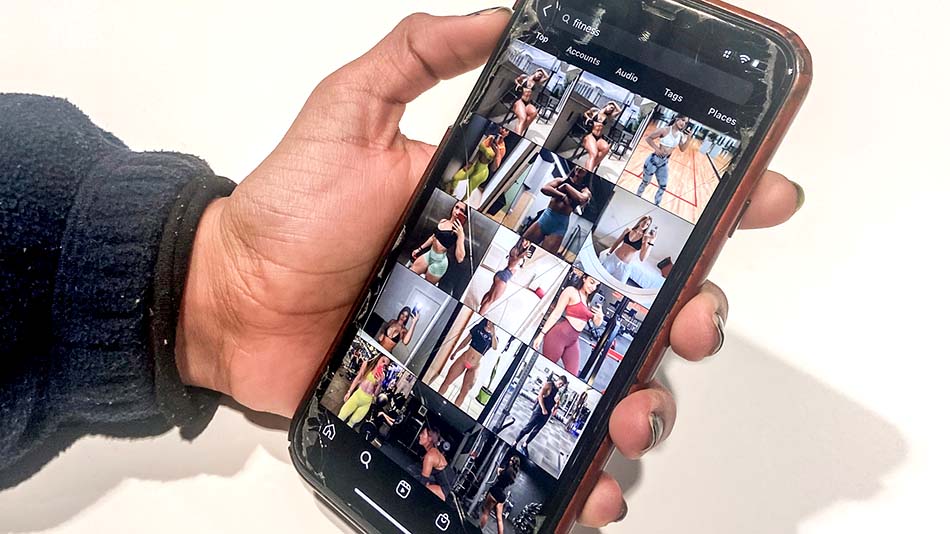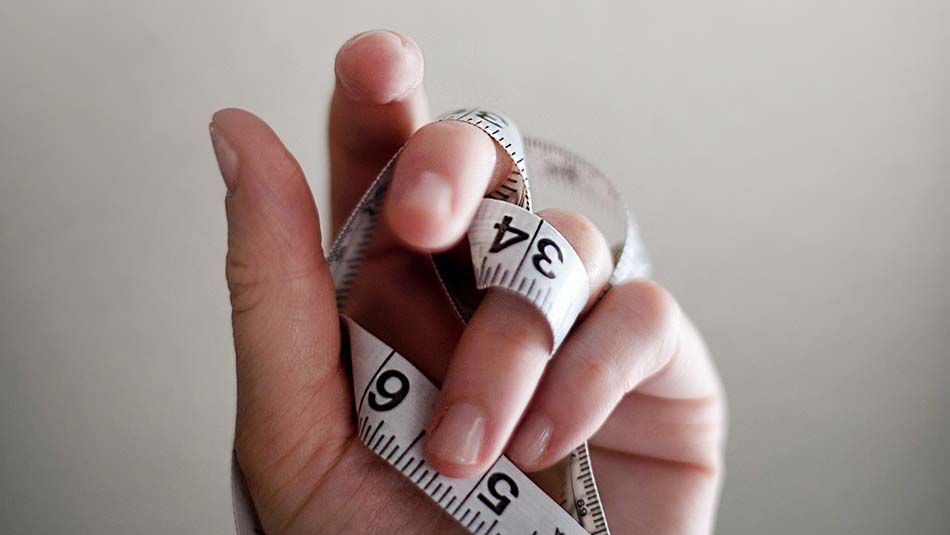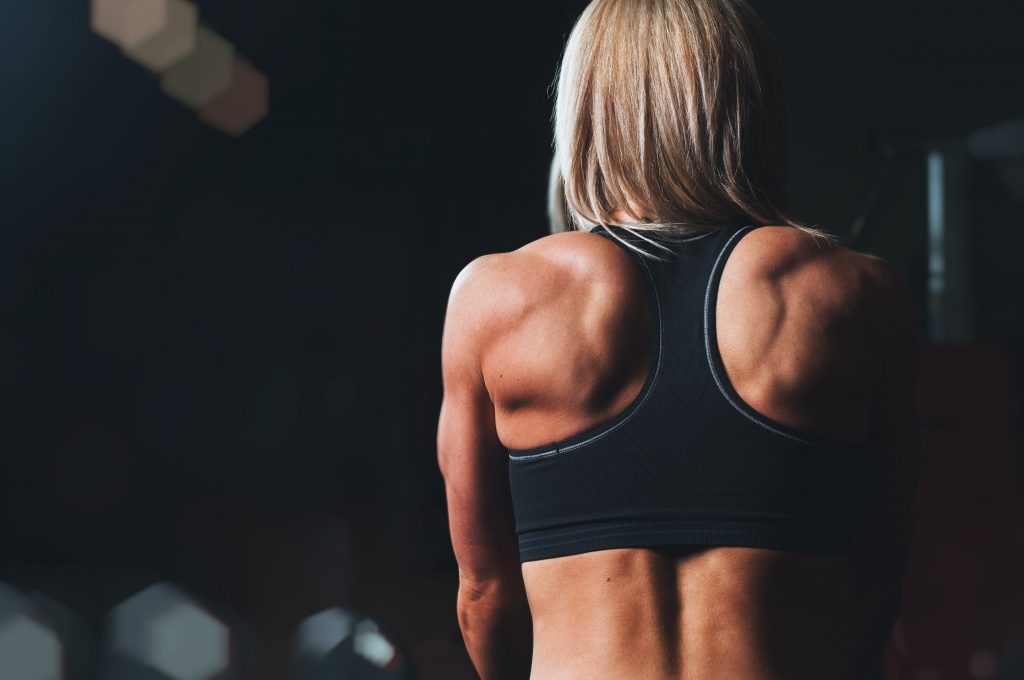Fitness influencers have been criticised for promoting unhealthy body image and impacting people’s mental health. How realistic is it for them to deliver honest and ethical content on social media?
The clinic was never without a patient. Every time Suzanne went to visit, she was struck by how many young, forlorn faces she saw battling and going through similar difficulties to her stepchild.
Her family was heartbroken, and their way of life was changed when they learned that one of their members had been diagnosed with anorexia, a severe eating disorder. The three times that her family member had to visit an inpatient clinic, Suzanne was astounded by the sheer number of young people – both boys and girls – going through the same challenges.
“Ignorance is absolute bliss to be honest, it’s a disease that blows a family, anybody close to it and the person suffering, to pieces,” said Suzanne, who never had to dealt with something like this before. “What absolutely blew my mind was how many people were suffering… and what I couldn’t understand was how these kinds of challenges can create scars for life and if you have this many young people who are really struggling with life young, that’s not starting off in the world in a good place.”
Social media, particularly influencers who manipulate their photos and put pressure on individuals to comply to false beauty standards, played a key role in her stepchild’s low self-esteem and body image struggles. “Don’t tell people what you wake up looking like when that’s not what you look like because as humans, we compare ourselves, and that’s what’s having such an effect on self-esteem, mental health, and body image,” she said. “I believe fitness influencers are, and it’s because of pressures in their industries, as digital editing is rife in the fitness industry to get this perfect look.”

There are an estimated 1.25 million people in the UK suffering with anorexia or bulimia, and studies have shown that social media puts pressure on people to have unachievable body standards. Social media platforms including Facebook and Instagram are all linked to increased feelings of depression, anxiety, poor body image and loneliness, according to a survey conducted by the Royal Society for Public Health.
After learning about her family’s condition, Suzanne felt compelled to implement change that could limit the harm social media and influencers have on people’s mental health. To achieve this, she launched the #HonestAboutEditing campaign to hold social media companies and influencers accountable for knowingly altering images and requiring them to mark such content as edited.
“One of the key things for me is that the campaign asks for any content that’s digitally edited to be labelled, mainly because there’s that word – responsibility,” said Suzanne, who believes fitness influencers are particularly at fault for presenting unrealistic portrayal of themselves.
“For a while, I felt like I had to share certain content, showing that this is the dream life, this is the fitness life, where I’m going to the gym and I’m getting my steps in.
Urvashi Lad, Fitness Influencer
As many as 1 in 3 teenagers feel shame about their body, with 94% of girls aged 11-21 believing more needs to be done to protect young people from body image pressures online. The Body Image campaign, launched in January 2022 by former GP turned Conservative MP Dr Luke Evans, aims to compel social media influencers to include warning logos on modified body image photographs, much like Suzanne’s petition.
The strain to uphold the standards of beauty that people often expect from them is felt by many fitness influencers, especially those who are just beginning to post content. Fitness influencer Urvashi Lad struggled to navigate the moral complexities of social media when she first started offering fitness advice on Instagram and felt under pressure to provide a false picture of her life.
“For a while, I felt like I had to share certain content, showing that this is the dream life, this is the fitness life, where I’m going to the gym and I’m getting my steps in. I’m doing all this stuff and I’ve seen other people do that a lot,” said Urvashi, who has since then posted more personal content that doesn’t always fi the norms of other fitness influencers. “What I do now is be more real – my followers haven’t grown in the last year and that’s because I decided I wasn’t going to do ridiculous reels and make myself look stupid, I wasn’t going to show this insta-perfect life.”
Since completing her personal training course and launching her business Push with Ush, Urvashi has posted more personal content on her struggles with weight and fitness, which don’t always suit the norms of other fitness influencers. She said, “I’m not your typical coach, I have put on weight in the last year and over the last week, I put up an honest post about how much weight I’ve put on, I’ve got pictures and I’ve started sharing more spirituality stuff because that’s really important to me and sharing stuff like that aren’t always Instagrammable.”
“Just be consistent with everything and be as truthful to who you are as a person more than anything.
Urvashi Lad, Fitness Influencer
To prove that what we see on social media isn’t always truthful, Cassey Ho, a certified fitness influencer, analysed photos of the 100 most-followed females on Instagram in 2019 and determined 22 physical attributes – including face shape, height, nose size, hair colour and body shape – that make up Instagram’s beauty standard.
Ho had her own pictures photoshopped according to those standards and shared the before-and-after images with her followers to raise awareness of social media’s unrealistic beauty ideals, in which only five out of the top 100 female Instagrammers were plus size.
As more fitness influencers begin to rise on social media, photos of lean, muscular figures are becoming representative of the ideal body shape that is considered to be healthy. When confronted with difficulties of delivering honest and ethical content, Urvashi thinks fitness influencers should prioritise being transparent rather than adhering to current trends that can be harmful to consumers.
“Just be consistent with everything and be as truthful to who you are as a person more than anything and kind of not getting swept up in this let me post every day, let me think what image I’m going to use or what filter I’m going to put on it because everyone else is,” said Urvashi. “You don’t want to get caught up in this ‘this influencer lifestyle, I’m influencing people, I’ve got to inspire people to be more like me’ and be a fake version of you.”

Social media platforms have overexposed people to thinness ideals in recent years, transforming this ideal into a new beauty standard that everyone, particularly women, must strive to achieve. Viewing digitally altered bodies on social media can be detrimental to a person’s self-esteem and perception of their bodies, according to a 2017 study led by researchers Sara Santarossa and Sarah J. Woodruff.
By sharing more authentic and candid posts about her fitness journey with her audience, Urvashi intends to disrupt this norm and help women who struggle with negative body image.
“I’ve always wanted to be that person that they can lean on for support, someone who can guide them out of wherever they are, whether that’s depression because fitness does help with depression and all kinds of things,” said Urvashi, who has battled her own struggled with body image since she was a young age. “If someone has an eating disorder, I’ve been there so I’m empathetic and I know what it is like, so I just want to help women.”
While many fitness influencers still advocate for unhealthy body standards through dietary advice and exercise regimens, Urvashi has observed that other influencers are beginning to provide health and wellness advice, particularly for women, that focuses on enhancing their mindset rather than their physical appearance.
“I’ve noticed over the last year that a lot of female influencers are changing their tune so it’s not about lifting heavy, it’s not about going to the gym every day of the week, it’s more about making sure you’re working in tune with your menstrual cycle or being mindful of how you are feeling and listening to your body,” she said.

Instagram use has an indirect negative impact on people due to social comparison between users and those they follow. The more individual’s compare themselves to people they follow on social media, the more dissatisfied they become with their bodies, according to a 2021 study of 15 to 35-year-olds published in the International Journal of Environmental Research and Public Health.
While some influencers have started posting more realistic portrayals of their fitness lifestyle, many others continue to use their own bodies as the standard for what their clients should strive for. Caitlin Davies, who set up a fitness account on Instagram in 2018, voiced concern regarding Instagram posts that highlight an influencer’s physique and how this can affect someone’s desire to change their own body type.
“When you’re sharing how you are getting on, you are bound to have people message you and say, ‘I want to look like you’ or ‘I’ve got similar goals, tell me what to do’,” said Caitlin, who shares fitness content on Instagram but aims to encourage her followers to reach their own personal fitness goals, rather than following her own. “This is what I show on my Instagram, but I’m not telling you to go and do it, because you don’t know how other people are going to take that information and use it.”
Fitness looks different on everyone, and it is important that influencers remind their followers that following their gym routine will not necessarily give them the toned physique they claim it has given them. As a personal trainer, Caitlin believes it is crucial for her and other influencers to examine an individual’s fitness goal rather than establishing a general exercise plan that does not meet their specific needs.
Influencers should be more careful about what fitness content they share with their followers as it could potentially harm their body image, according to Caitlin. “I’ve never promoted that kind of content because I just don’t believe it is beneficial to anyone, knowing what my calorie target is or what that’s being made up of because a lot of people will copy that,” she said.
“I think Instagram encourages you to post these influencer, friendly, pretty images and not the sweaty selfies of you working out at the gym
Amy Burker-Smith, Personal Trainer
A recent Instagram trend involves fitness influencers posting brief video clips known as reels, detailing their daily diets alongside before-and-after photos of themselves to show their weight-loss journey.
For many, these popular trends including the ‘what I eat in a day’ posts on Instagram and other social media platforms, have damaged their engagement with fitness. Personal trainer Amy Bucker-Smith rejected the idea of creating a fitness Instagram account, as so many others have done in recent years, because of the pressure to conform to its unrealistic beauty standards.
“I think Instagram encourages you to post these influencer, friendly, pretty images and not the sweaty selfies of you working out at the gym,” said Amy, who deleted her personal Instagram account after noticing a change in how her followers connected with her profile.
When she posted fitness content on Instagram, she noted that while her upbeat and joyful photographs had received a lot of attention, her followers became disengaged with her more realistic and occasionally “ugly” posts about her life. “It made me disengaged with Instagram because the lovely pictures I took got a lot of attention and then all the more realistic that weren’t lovely pictures didn’t do very well,” she said. “It just made me think that Instagram does just want fake, pretty things essentially and so, as I went into personal training, I wasn’t on board with Instagram.”
As fitness influencers continue to gain popularity, they have a responsibility to their followers to be honest and ethical as possible, but with the aid of filters, photoshop and good lighting, it has become easy for them to manipulate how they appear online.
However, many influencers feel pressured to participate in current fitness trends because their interaction with their followers grows, and as a result, they avoid sharing fitness content that is important to them. Caitlin Davies admits that she experiences this burden personally and that, when her fitness account doesn’t have significant levels of audience engagement, she frequently loses interest in it.
“I go through periods of having time off from it because it’s really important to get away from being viewed all the time, especially if you’re putting out content that you work hard on and you’re putting a lot of time and effort into it and the interaction back is lacking,” said Caitlin.
The pressure to meet unrealistic ideals of beauty from fitness influencers can be incredibly detrimental to people’s health, and it is evident that even influencers themselves find it difficult to stray away from following popular trends. While there has been improvement in fitness influencers’ responses to ethical issues, more influencers should offer motivational, honest content in order to combat the pressure to meet unattainable body standards.
